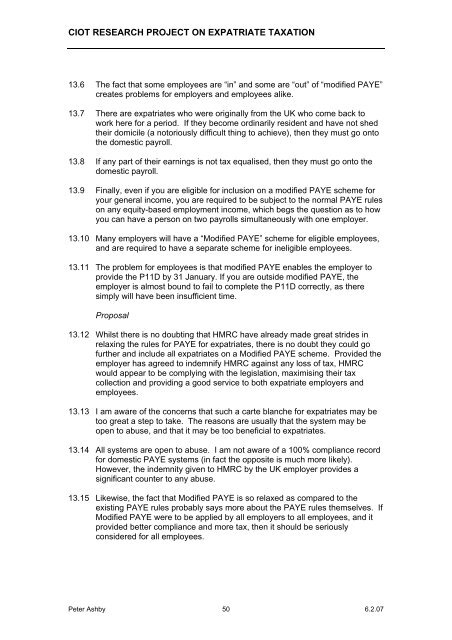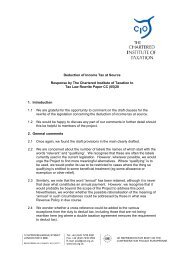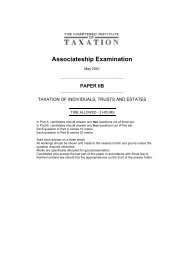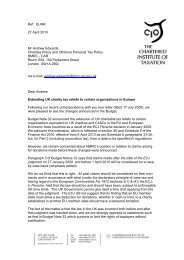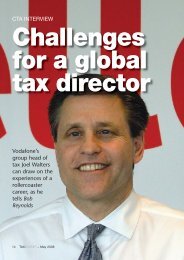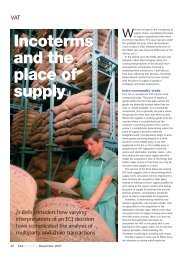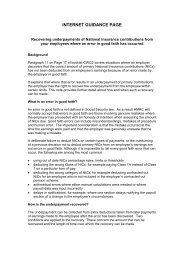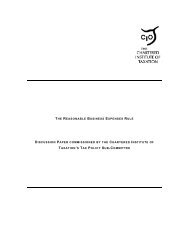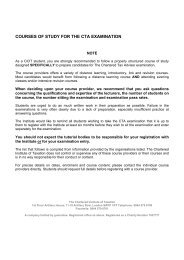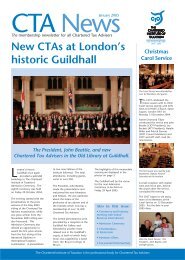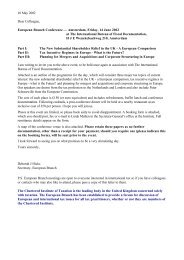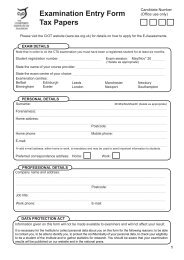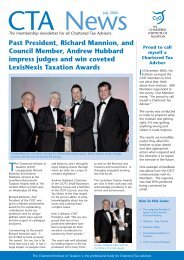Expatriate taxation - CIOT - The Chartered Institute of Taxation
Expatriate taxation - CIOT - The Chartered Institute of Taxation
Expatriate taxation - CIOT - The Chartered Institute of Taxation
You also want an ePaper? Increase the reach of your titles
YUMPU automatically turns print PDFs into web optimized ePapers that Google loves.
<strong>CIOT</strong> RESEARCH PROJECT ON EXPATRIATE TAXATION<br />
13.6 <strong>The</strong> fact that some employees are “in” and some are “out” <strong>of</strong> “modified PAYE”<br />
creates problems for employers and employees alike.<br />
13.7 <strong>The</strong>re are expatriates who were originally from the UK who come back to<br />
work here for a period. If they become ordinarily resident and have not shed<br />
their domicile (a notoriously difficult thing to achieve), then they must go onto<br />
the domestic payroll.<br />
13.8 If any part <strong>of</strong> their earnings is not tax equalised, then they must go onto the<br />
domestic payroll.<br />
13.9 Finally, even if you are eligible for inclusion on a modified PAYE scheme for<br />
your general income, you are required to be subject to the normal PAYE rules<br />
on any equity-based employment income, which begs the question as to how<br />
you can have a person on two payrolls simultaneously with one employer.<br />
13.10 Many employers will have a “Modified PAYE” scheme for eligible employees,<br />
and are required to have a separate scheme for ineligible employees.<br />
13.11 <strong>The</strong> problem for employees is that modified PAYE enables the employer to<br />
provide the P11D by 31 January. If you are outside modified PAYE, the<br />
employer is almost bound to fail to complete the P11D correctly, as there<br />
simply will have been insufficient time.<br />
Proposal<br />
13.12 Whilst there is no doubting that HMRC have already made great strides in<br />
relaxing the rules for PAYE for expatriates, there is no doubt they could go<br />
further and include all expatriates on a Modified PAYE scheme. Provided the<br />
employer has agreed to indemnify HMRC against any loss <strong>of</strong> tax, HMRC<br />
would appear to be complying with the legislation, maximising their tax<br />
collection and providing a good service to both expatriate employers and<br />
employees.<br />
13.13 I am aware <strong>of</strong> the concerns that such a carte blanche for expatriates may be<br />
too great a step to take. <strong>The</strong> reasons are usually that the system may be<br />
open to abuse, and that it may be too beneficial to expatriates.<br />
13.14 All systems are open to abuse. I am not aware <strong>of</strong> a 100% compliance record<br />
for domestic PAYE systems (in fact the opposite is much more likely).<br />
However, the indemnity given to HMRC by the UK employer provides a<br />
significant counter to any abuse.<br />
13.15 Likewise, the fact that Modified PAYE is so relaxed as compared to the<br />
existing PAYE rules probably says more about the PAYE rules themselves. If<br />
Modified PAYE were to be applied by all employers to all employees, and it<br />
provided better compliance and more tax, then it should be seriously<br />
considered for all employees.<br />
Peter Ashby 50 6.2.07


